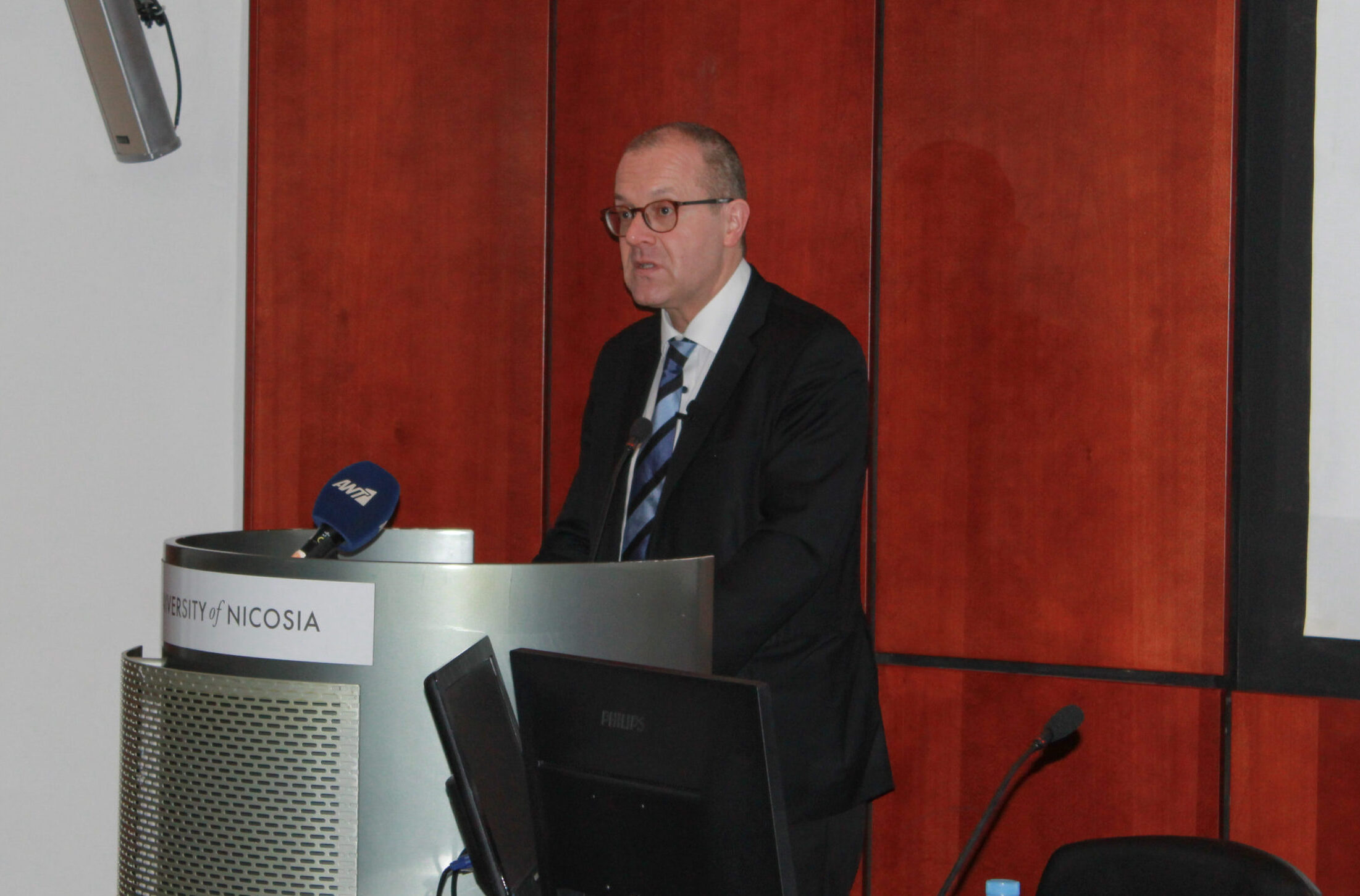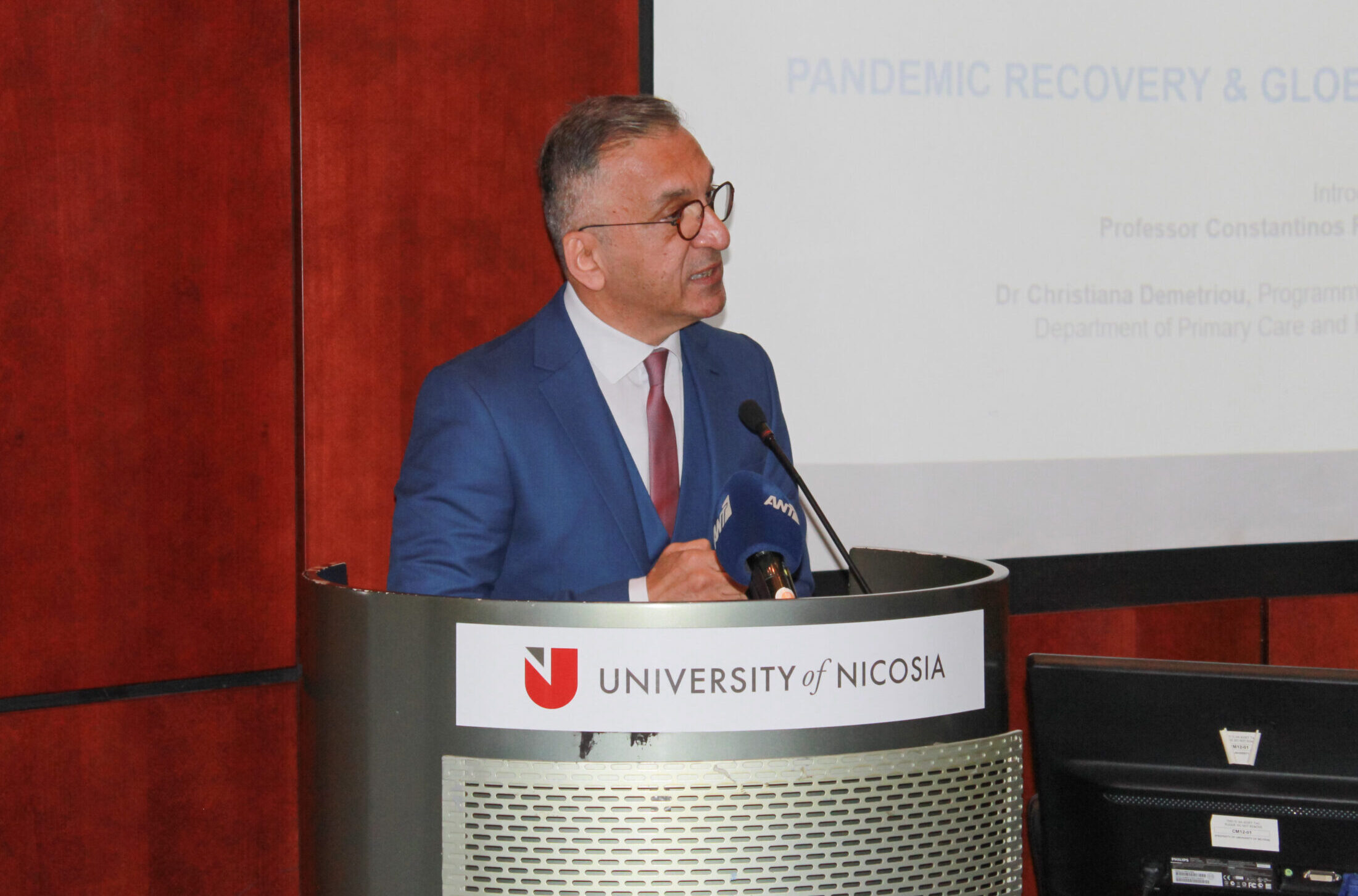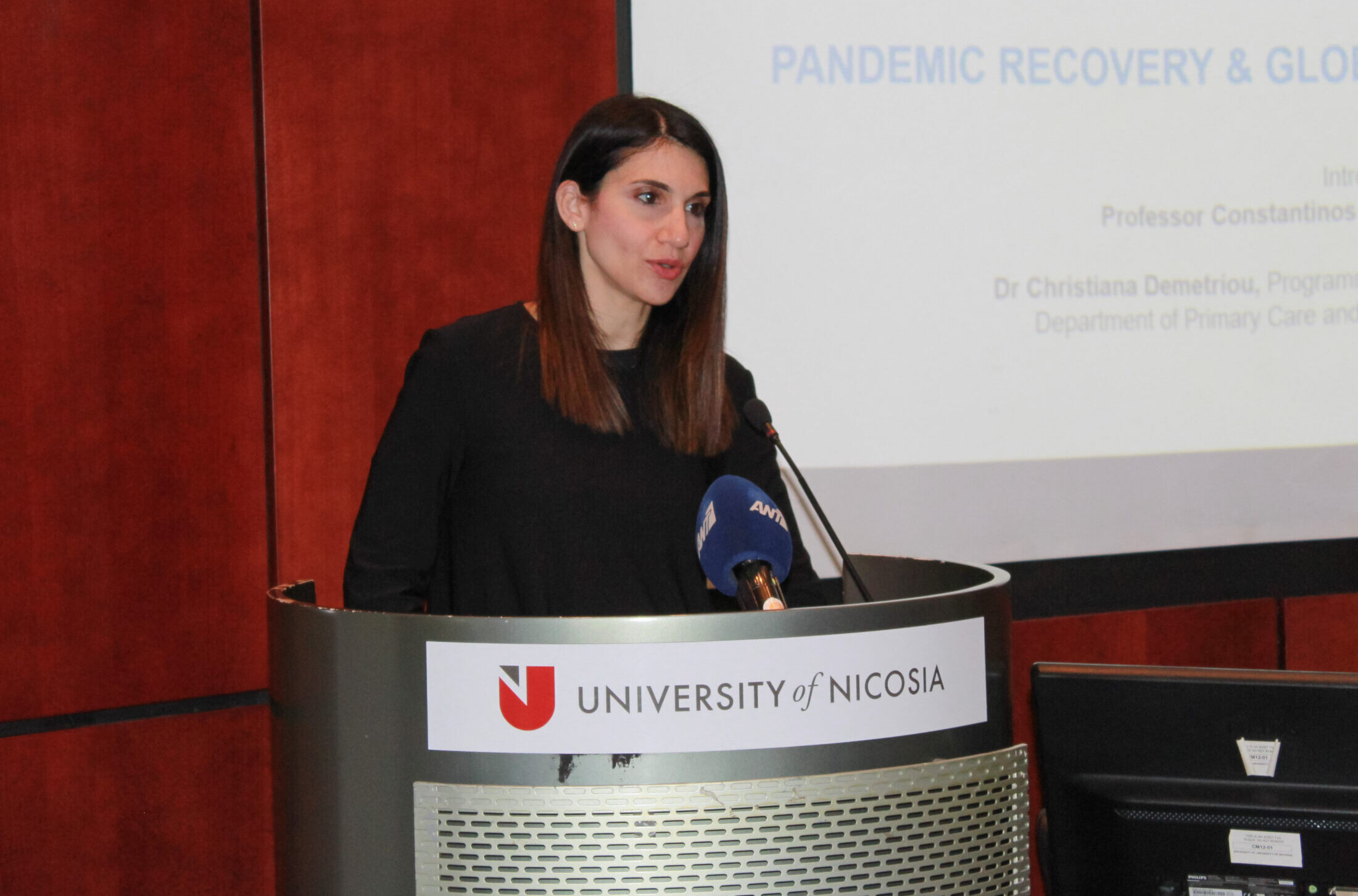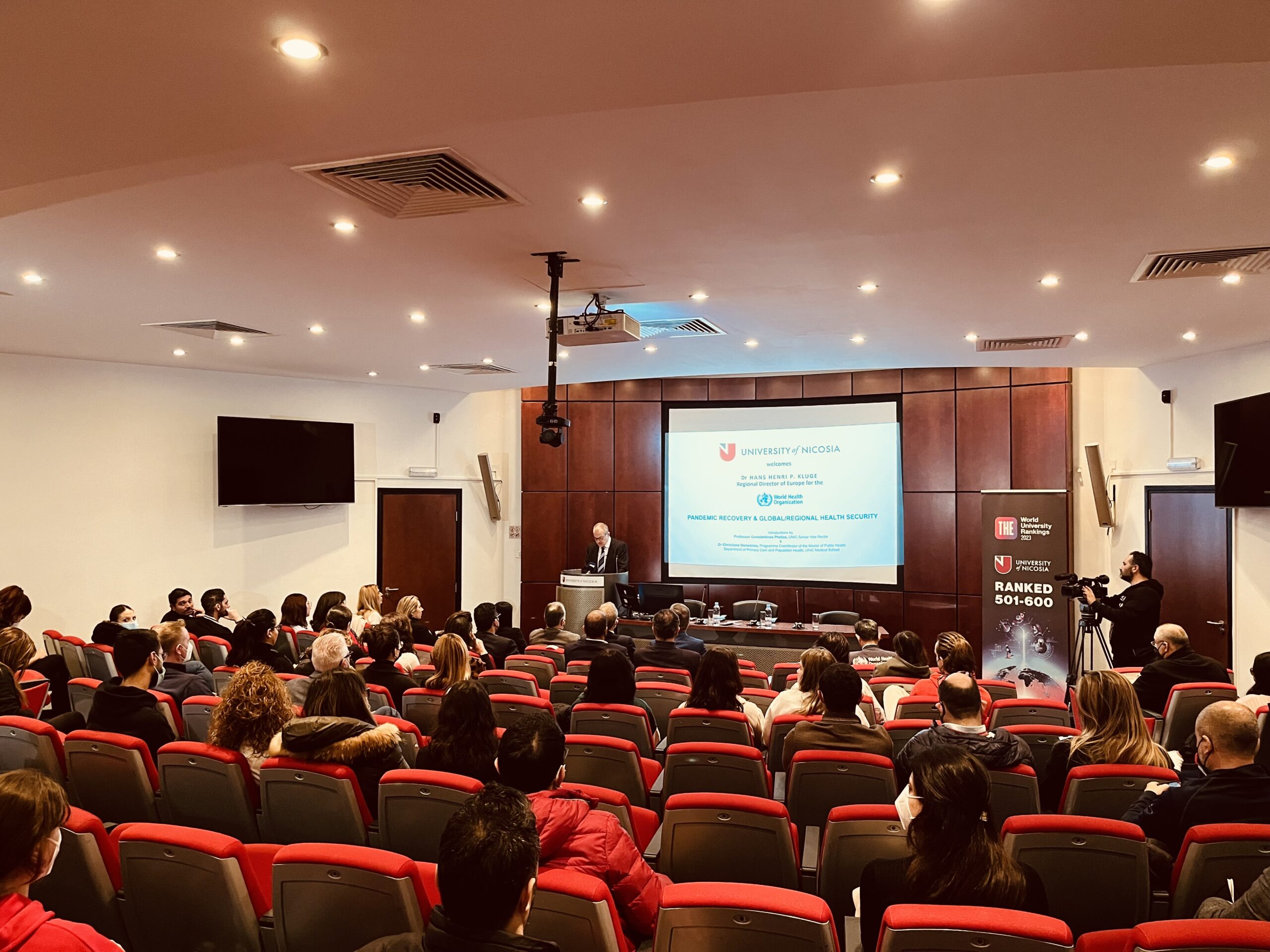“A future pandemic is a certainty – it’s a matter of ‘when’ and not ‘if’”, said Dr Hans Henri P. Kluge, the World Health Organisation (WHO) Regional Director for Europe, during his lecture on campus, titled “Pandemic Recovery and Global/Regional Health Security.” The lecture was organised by the Medical School’s Department of Primary Care and Population Health on Friday, 29 January 2023.
Dr Kluge said that an exhausted health workforce is at a breaking point while strengthening our collective health security architecture at national, regional and global levels “is so urgent” and in referring to the COVID-19 pandemic, he added “we are only at the very beginning of the road to recovery. COVID-19 is still with us, and it has laid bare our weaknesses. No single country or organization can tackle them alone. COVID-19 has taught us that international and regional health cooperation is essential, as investing in health has never been more urgent.” Dr Kluge added that health workers were, and still are, pushed to the brink of collapse because of stress and burnout: “The mental health challenges are hard to overstate. We now know that staff absences due to mental health increased by two thirds at the start of the pandemic. My message is simple. Invest in health systems and health workers. The consequences of not doing so will be disastrous at multiple levels.”


In his welcome address, Senior Vice Rector Prof Constantinos Phellas said that the COVID pandemic had posed unprecedented challenges to public health and financial systems all around the world, while the prolonged crisis poses the greatest threat to mental health since World War II, with repercussions that will be felt for years after the virus has been brought under control. He added that the establishment of a WHO office in Cyprus is a strong testament of the Organization’s commitment to advance interregional collaboration for promoting health and wellbeing, and reassured Dr Kluge that the University of Nicosia will provide all support needed in ensuring that health and equity remain integral to sustainable development, honouring the principal code of the Sustainable Development Goals 2030 agenda, leaving no one behind.
On behalf of the Medical School and the Department of Primary Care and Population Health, Dr Christiana Demetriou welcomed Dr Kluge at the University of Nicosia, and said that the work of the Organisation’s Regional Office in Europe, under Dr Kluge’s direction, “has inspired and fuelled” their work. Dr Demetriou also said that the activities of her department were “well-aligned” with the key health priorities of the European Programme of Work, 2020–2025 – “United Action for Better Health in Europe.”


